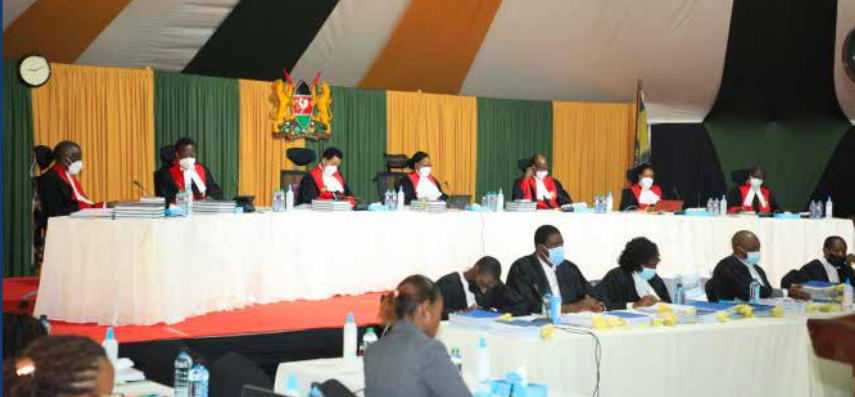Supreme Court’s Ruling on Sonko breathes new life to Chapter Six of the Constitution

The Supreme Court dealt a final blow to Mike Sonko’s stab at the Mombasa gubernatorial race when it dismissed his appeal concerning his impeachment from the office of the Governor of Nairobi City County.
In the shortened version of its decision, the Supreme Court noted that Chapter Six of the Constitution was not enacted in vain or for cosmetic reasons. Further, the court emphasised that the authority assigned to a State officer is a public trust that ought to be exercised in a manner that demonstrates respect for the people, brings honour to the nation and dignity to the office, and promotes public confidence in the integrity of the office. It vests in the State officer the responsibility to serve the people rather than the power to rule them.
Chapter Six of the Constitution of Kenya provides for the leadership and integrity of all public officers. It places the burden of responsibility in managing state affairs on public officials and behoves them to conduct themselves beyond reproach.
More specifically, Chapter Six states that persons who are found to be in breach of certain provisions and dismissed from office are barred from holding state offices again.
The apex court’s dismissal of the appeal effectively means that Sonko is ineligible to vie for the Mombasa gubernatorial seat or any other elective seat in the future. By failing the integrity test, Sonko is also ineligible to be appointed to a state office in Kenya.
As Kenyans clamoured for a new constitution, one of the thorny issues they sought to resolve was the unfettered power and abuse of public office by state officers. The people’s will was to ensure only ‘fit and proper’ persons occupied public offices. However, due to lack of political goodwill, the leadership and integrity provisions enshrined in the Constitution were subsequently watered down through the passage of a weak Leadership and Integrity Act that was supposed to operationalize these provisions.
In the upcoming August 9th elections, there have been concerns about candidates being cleared by the electoral agency despite facing integrity issues. The Ethics and Anti-Corruption Commission (EACC) had expressed frustrations in ensuring politicians with integrity issues are not allowed to contest for elective positions in next month’s polls.
According to the EACC, there is a need to review the law and build consensus among the bodies with the role of vetting and clearing candidates, as well as sensitise the public to ensure tainted politicians no longer use legal loopholes to get their way into leadership.
The Supreme Court’s ruling on the Sonko case breathes life back to the leadership and integrity provisions of the Constitution. More work remains to be done to strengthen the legal framework and the institutions charged with implementing Chapter Six.
The Judiciary has set a precedent that will clearly sound a warning shot to the political elite. Uphold the law or face the consequences.

